The 3 worst things you can do to your freezer – these will put you on the fast track to costly early replacement
Don't risk unnecessary damage and expensive repairs


It's a vital appliance that works hard 24/7 so avoiding some of the worst things you can do to your freezer will benefit it in multiple ways, and save you money in the long run.
Freezers usually require little maintenance, but some things can damage your appliance, such as overloading it or the wrong placement in your kitchen, and put you on the fast track to needing a replacement.
Here, appliance experts and electricians share their tips for keeping yours working efficiently, applicable to all models, from the very best refrigerators to the most budget options, too.
The 3 worst things you can do to your freezer
1. Never defrosting or cleaning it
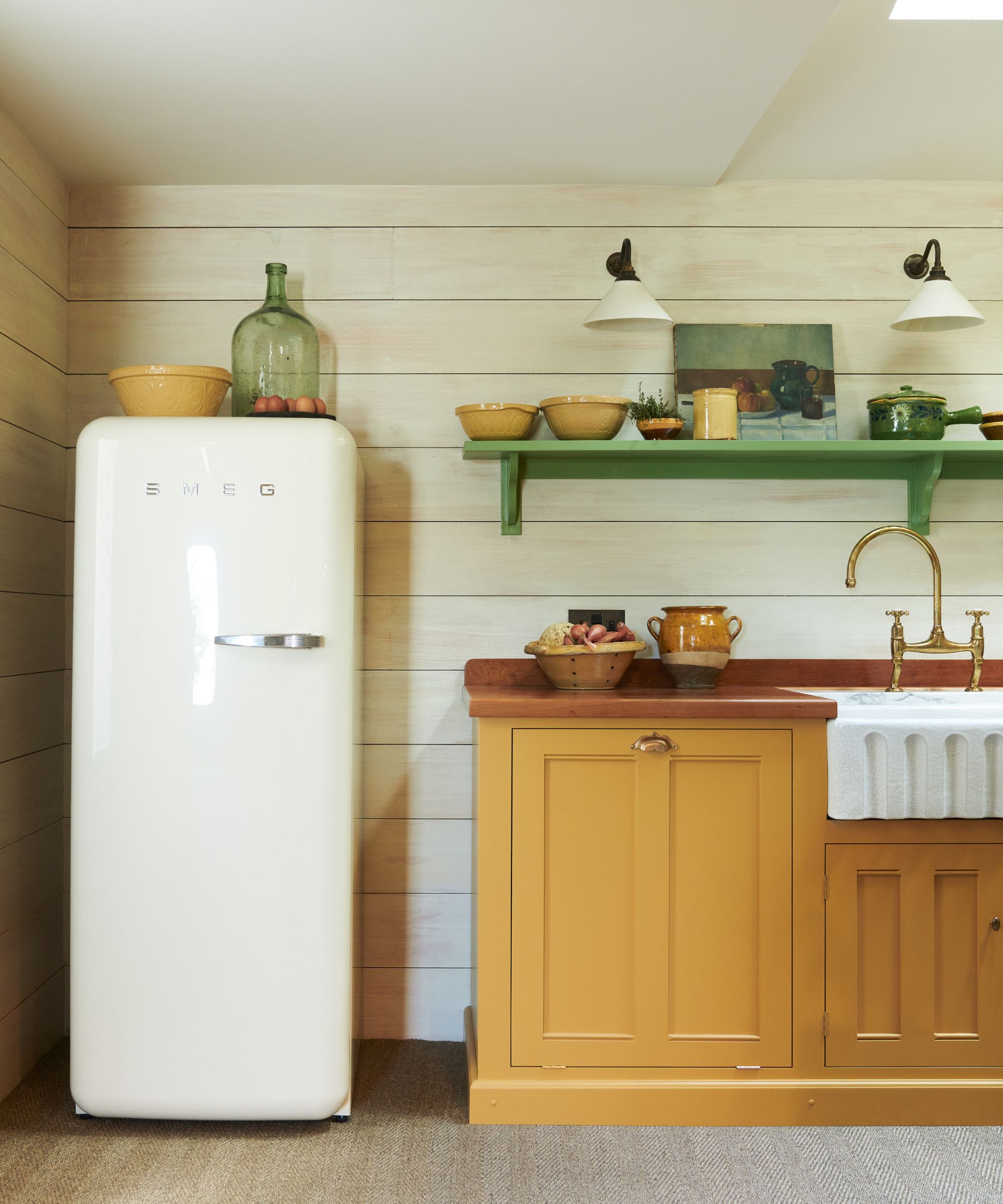
Like anywhere around the home, your freezer needs regular maintenance.
It's likely that you regularly take time to clean your refrigerator, but when was the last time you cleaned your freezer?
Glenn Lewis, president of Mr. Appliance, a Neighborly company, advises, 'The manufacturer recommends cleaning your freezer once a year, or more if the conditions warrant it.' This can be done using an all-purpose, antibacterial kitchen cleaner, such as the Method Antibacterial All-Purpose Cleaner in Bamboo, available at Walmart, with a microfiber cloth. Alternatively, to clean your home without harming the planet, you can try cleaning with vinegar.
Glenn also emphasizes the importance of maintaining your freezer, which will prevent any warning signs you need to replace your old appliance from cropping up too quickly.
'By not maintaining it, the condenser will fill with dust and lint,' explains Glenn. 'The fan and compressor will run all the time trying to cool the refrigerant, and the freezer will wear out quicker and not maintain the proper temperature to keep your food safe. Also, your electric bill will be higher than it needs to be.'
One of the most vital maintenance steps is regularly taking the time to defrost your freezer.
Appliance technician and licensed electrician at Fantastic Services, David Miloshev, says, 'While some freezers have a feature for Frost-Free technology, which prevents ice from forming, others require defrosting. However, many people neglect this chore.'
And, as both David and Glenn highlight, failing to do so can cause excess ice to build up, preventing access to drawers and increasing the energy your freezer needs to run, which certainly won't help to cut energy bills.
Luckily, you can defrost a freezer without turning it off, which should always be done, stresses David, once the ice reaches more than three centimeters thick on the walls or roof.
When doing so, it's crucial not to use anything sharp to remove any ice buildup, says Glenn, which might damage the liner. 'If you put a hole in the liner, moisture will get in and cause the unit to fill up with ice,' he explains, hindering rather than helping the problem. Then, ensure you know the optimal temperature to set your freezer before re-filling it.
All prices were correct at the time of publication.
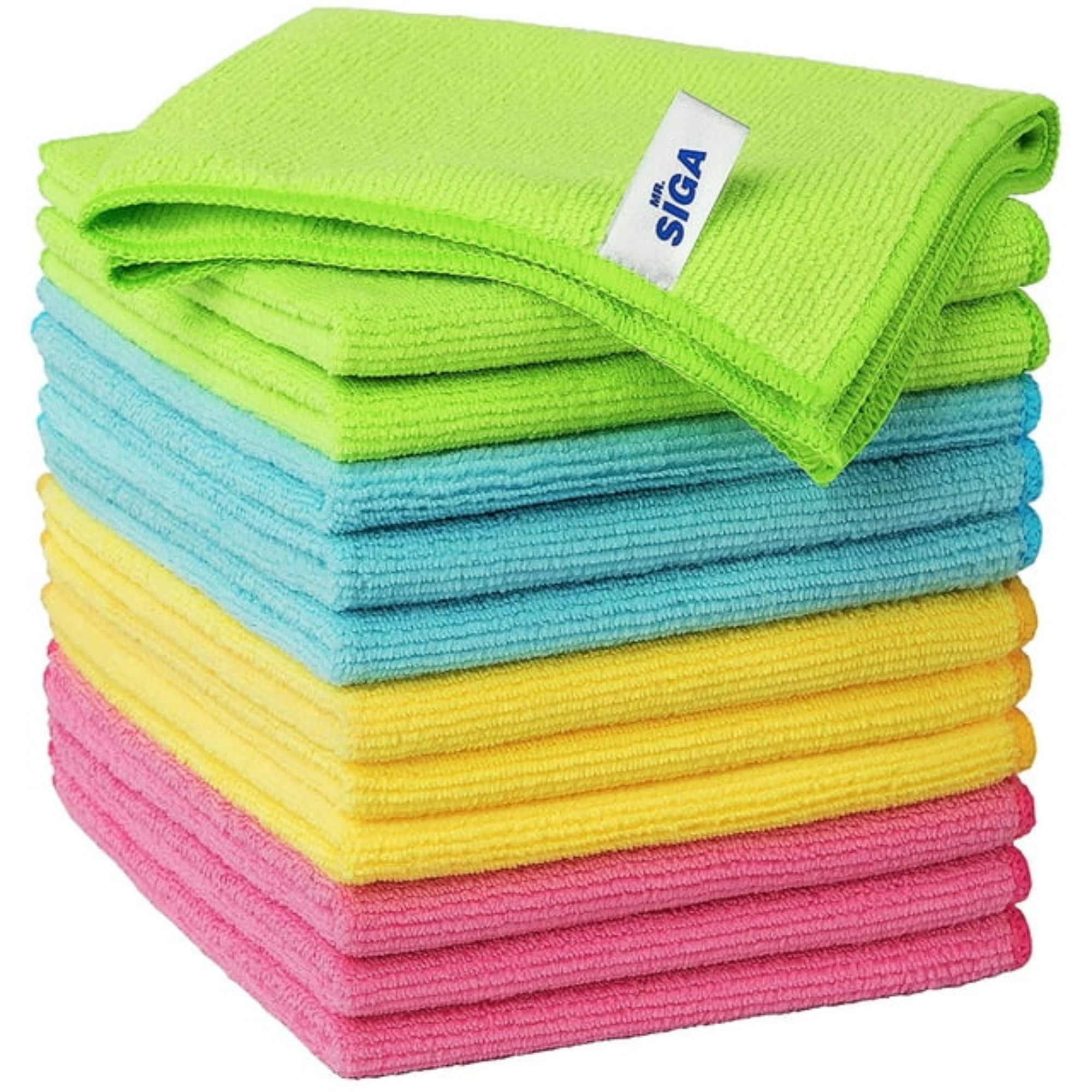
These handy microfiber cloths can be used for dusting and cleaning all around the home, as they're super absorbent, lint-free, and machine washable.
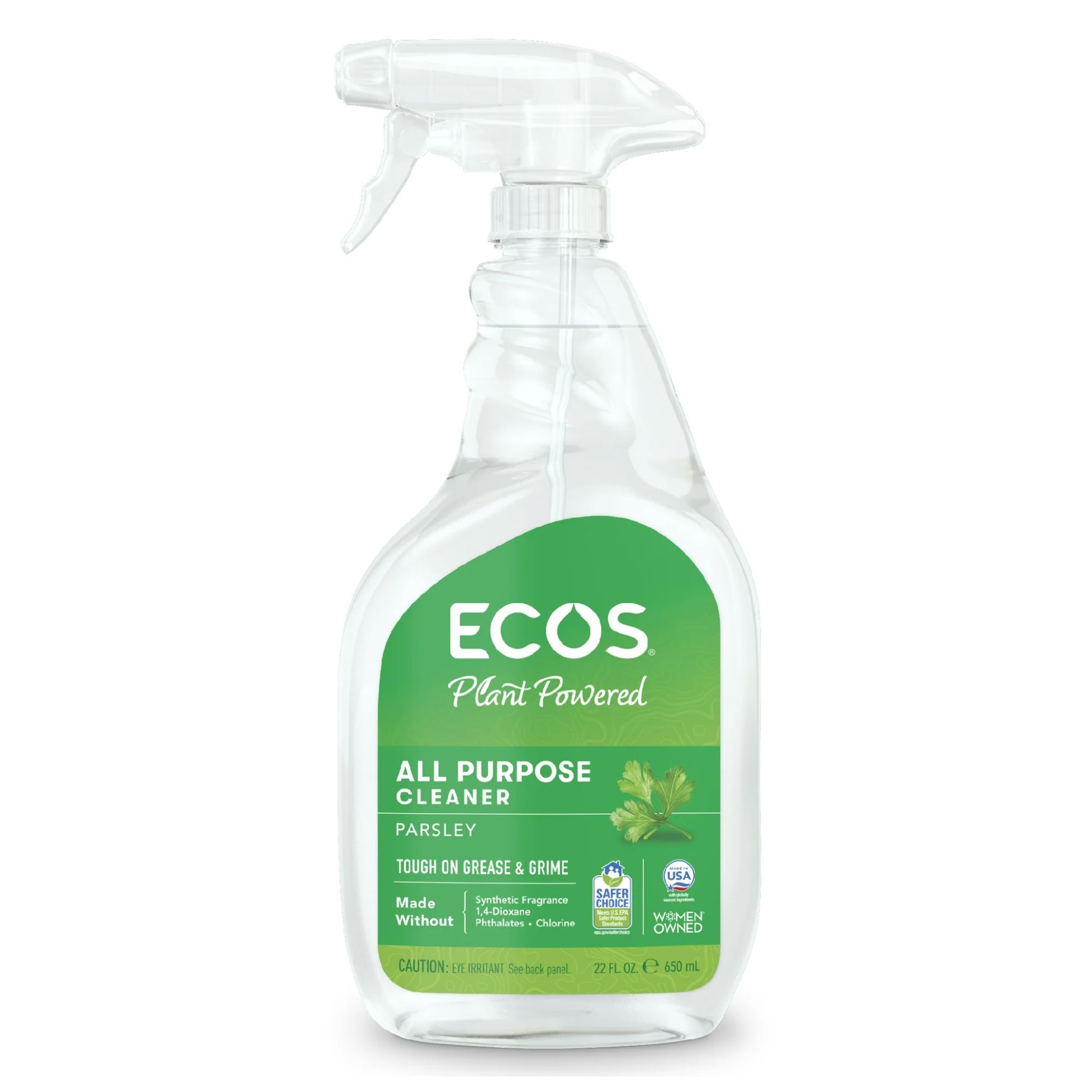
If you prefer not to use harsh, commercial chemicals around your food, this all-natural cleaning spray is made without ammonia, parabens, phosphates, and more.
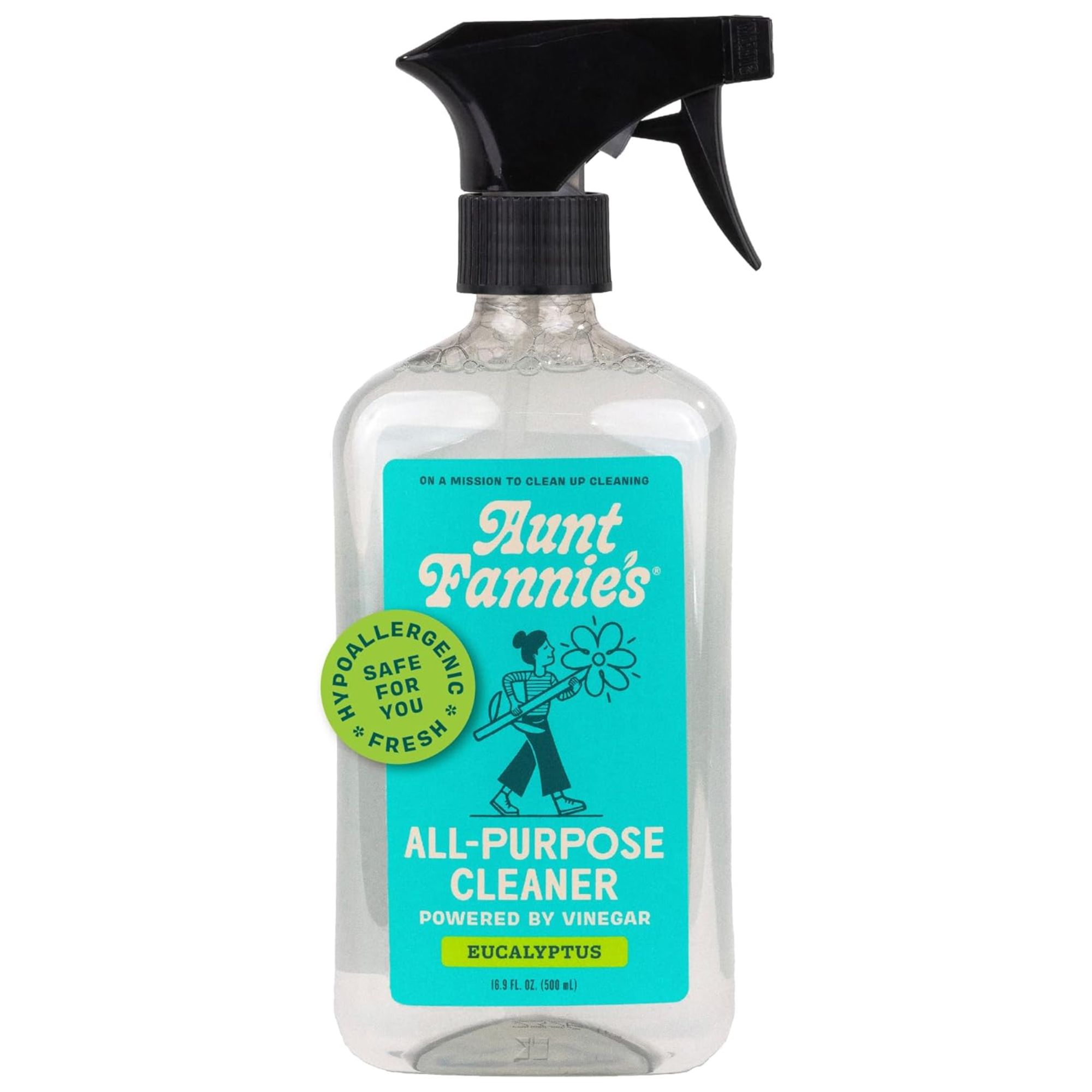
Made with only natural ingredients, this plant-based cleaning spray harnesses the cleaning power of vinegar to leave your home smelling fresh and clean.
2. Overloading it
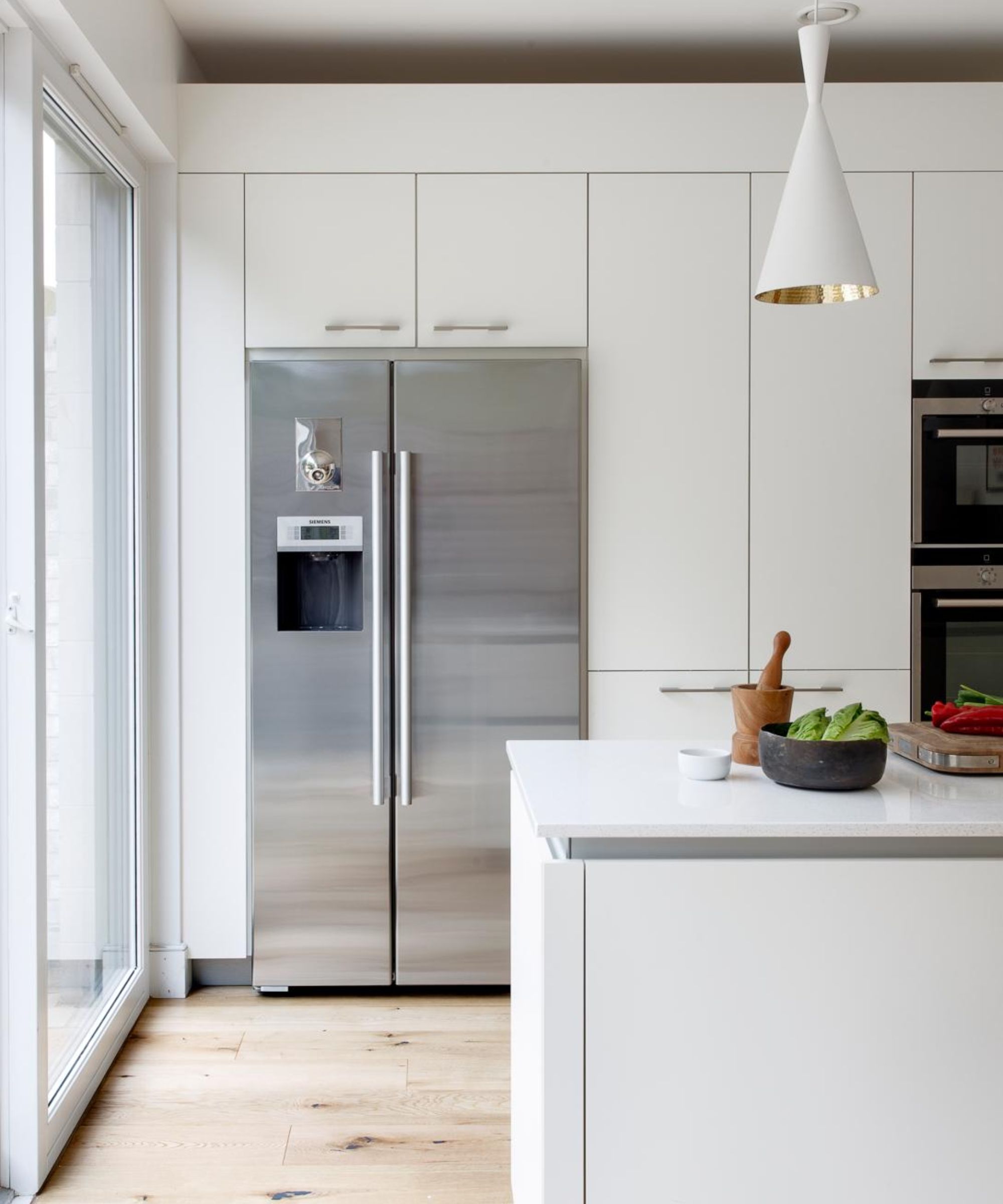
It's natural to try and fit as much as possible into your freezer, but overloading it risks damage and costly repairs.
Much like the worst things you can do to your fridge, a common reason that your freezer isn't freezing properly is that it's simply too full, says Adam Bushell, director of AB Electrical & Communications.
'It might seem like a good idea to pack it to the brim, but this limits airflow,' he warns. 'This makes it harder for the freezer to maintain consistent temperatures. When the air cannot circulate properly, food can freeze unevenly and the freezer has to work harder,' which is why overloading their appliance is one of the things people with organized freezers never do.
Therefore, adds Adam, on the flip side, one of the things people with organized freezers always do is ensure there is enough space between items for proper airflow.
When organizing a freezer, there are plenty of freezer storage and organization hacks to make the most of your space. For example, Adam recommends using stackable bins, such as the Freezer Organizer Bins available at Amazon, to allow for better circulation. These are suitable for organizing a chest freezer, too.
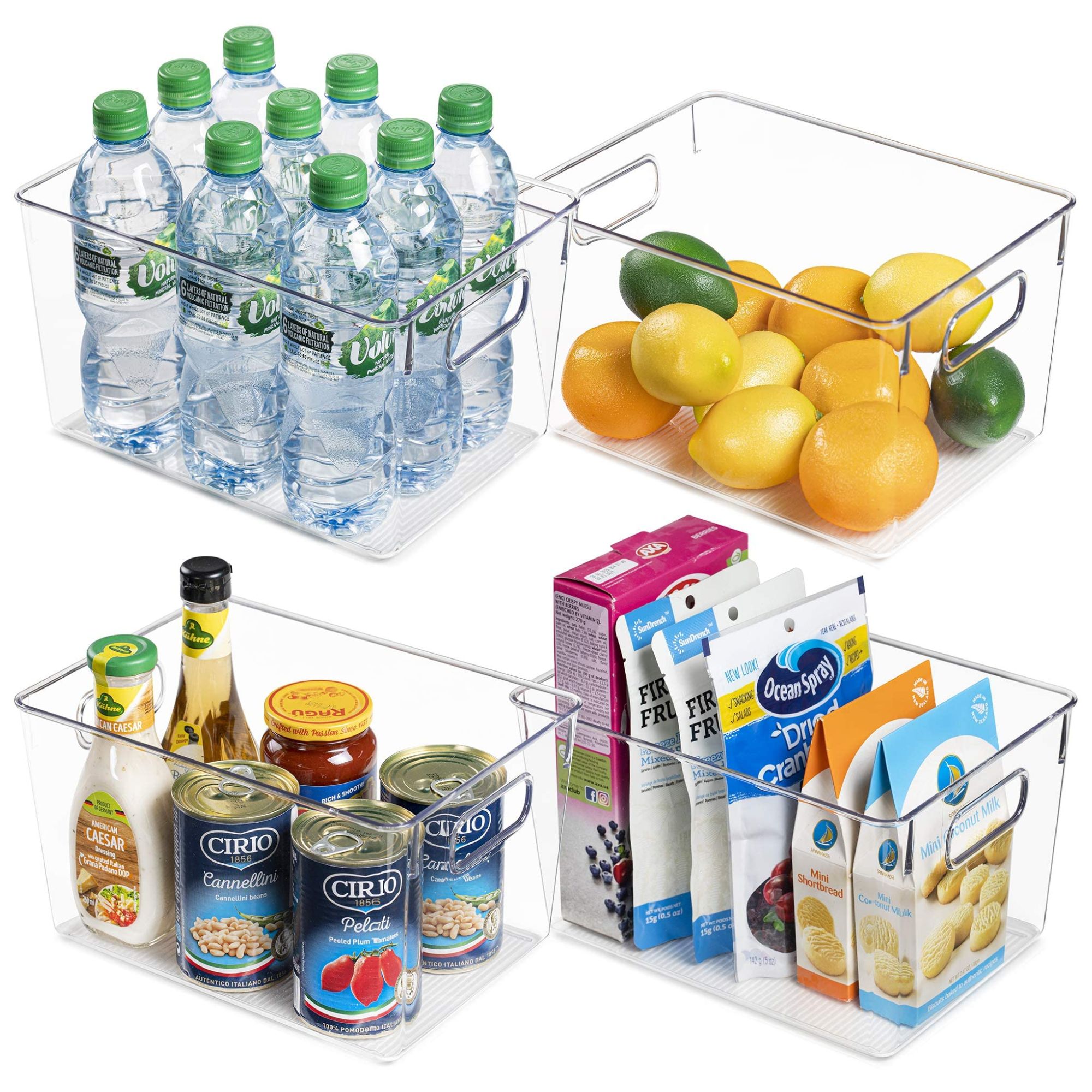
These stackable bins have integrated handles to easily access all items, and are suitable for use in both your fridge and freezer.
3. Placing it in a spot that's too warm
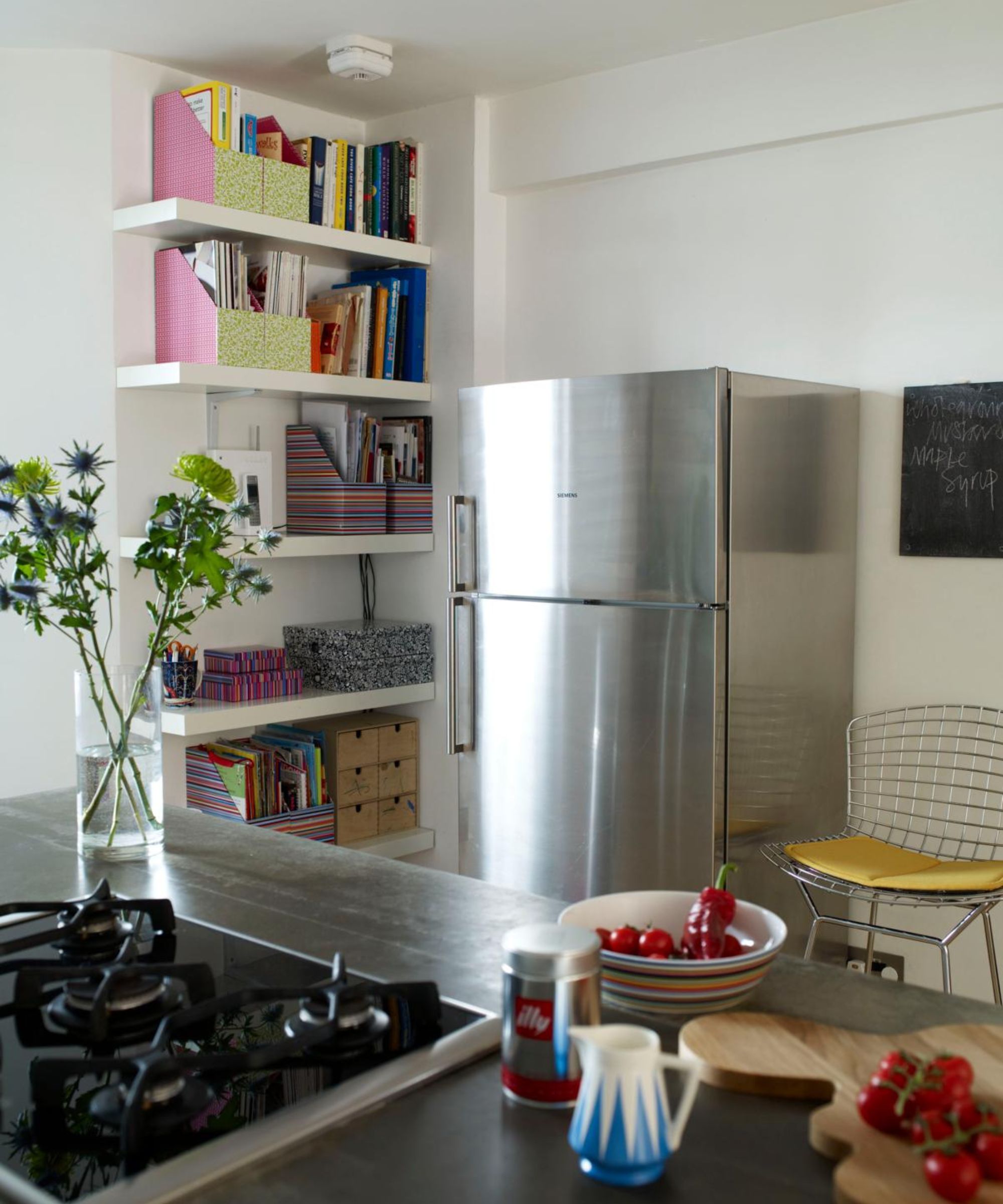
Your freezer placement is far more important than you might think.
You might not have thought about it, but just like the question of where a refrigerator should be placed, the whereabouts of your freezer is equally important.
Adam explains, 'One of the worst things you can do to your freezer is placing it in a spot that is too warm. Many people make the mistake of putting their freezers in areas that are exposed to direct sunlight or near heat sources such as ovens or heaters. The freezer works harder to maintain a low temperature which reduces its efficiency and can cause the motor to overheat.'
This may also be driving up your energy bills, making it difficult to save money at home. Therefore, moving your freezer is a maintenance task to lower your energy bills that is well worth your while.
'Position your freezer in a cool and dry place away from heat sources, instead,' advises Adam. 'If you are unsure about where to place it, check the manufacturer’s guidelines for ideal placement.'
Meet our experts

Glenn has been president at Mr. Appliance since 2024, which is North America's leading appliance repair franchise.
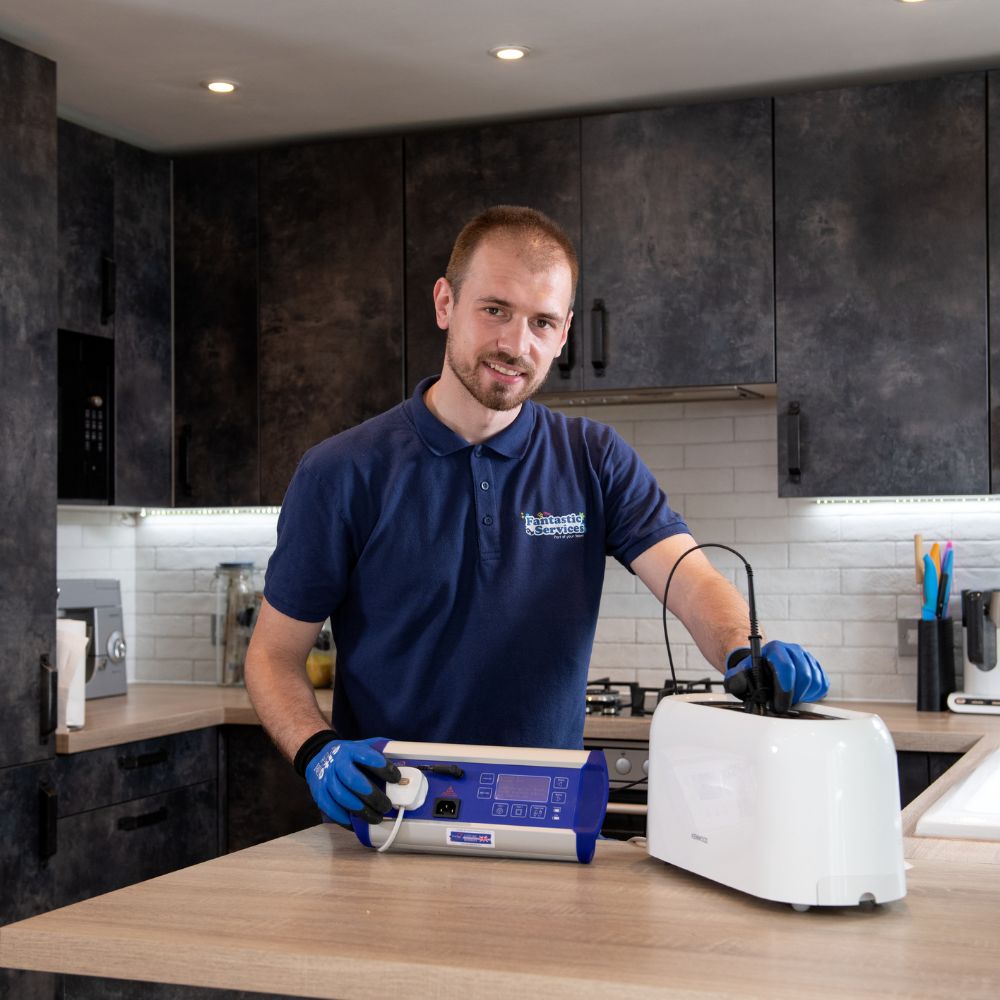
As a licensed electrician, David is well-versed in which mistakes to avoid at all costs when it comes to appliances.

Adam has over a decade of experience working in the energy sector, with a background in electrical work and renewable energy, spanning home appliances such as freezers, and the common mistakes that can lead to issues.
Are you aware of which items it's best not to store in the freezer? From leafy greens and veg to dairy products like milk and cream, some items aren't suitable for exposure to the freezing temperatures, and doing so can make them inedible.
Sign up to the Homes & Gardens newsletter
Design expertise in your inbox – from inspiring decorating ideas and beautiful celebrity homes to practical gardening advice and shopping round-ups.

Ottilie joined Homes & Gardens last year, after finishing a Master's in Magazine Journalism at City, University of London. With previous contributions in Livingetc and Motorsport Magazine, she produces content for the Solved section on the website, focusing on clever tips and tricks to keep your home beautiful, organized and clean. She also has an undergraduate degree in English Literature and History of Art from the University of Edinburgh, where she developed a love for inspiring interiors and architecture.
You must confirm your public display name before commenting
Please logout and then login again, you will then be prompted to enter your display name.
-
 7 expert-approved painting hacks to minimize clean up – to make an already exhausting task easier
7 expert-approved painting hacks to minimize clean up – to make an already exhausting task easierAvoid a backbreaking clean-up after your next painting project with advice from the professionals
By Chiana Dickson
-
 Gwyneth Paltrow's quiet luxury kitchen is so beautiful, we almost overlooked her ultra-smart cabinets – they make the use of 'every inch' of storage space
Gwyneth Paltrow's quiet luxury kitchen is so beautiful, we almost overlooked her ultra-smart cabinets – they make the use of 'every inch' of storage spaceThe Goop founder makes use of dead space in her kitchen with customized cabinetry that reaches to the ceiling, providing ample storage
By Hannah Ziegler
-
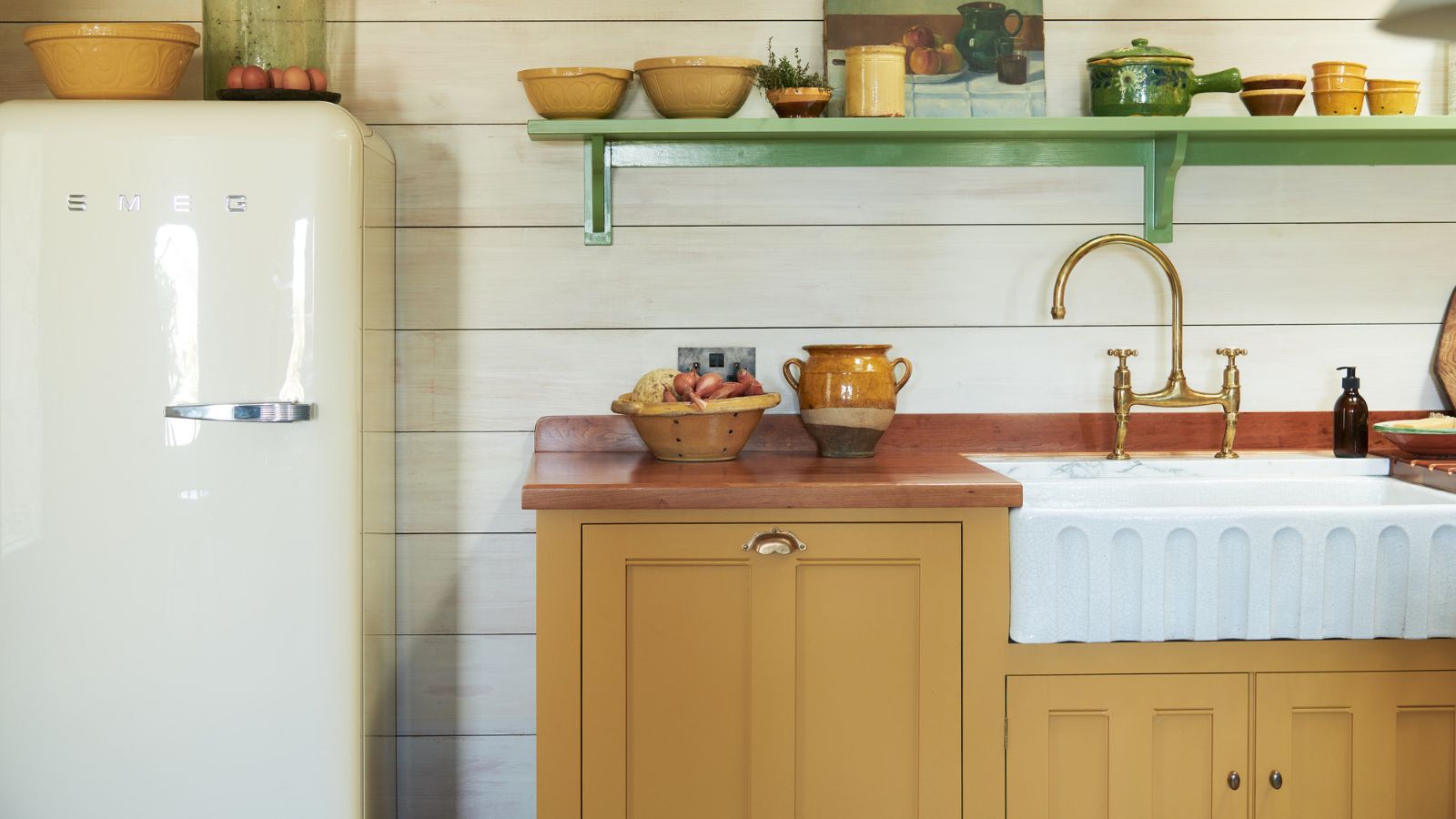 The 5 worst things you can do to your fridge – these will drive up energy costs and result in pricey and regrettable repairs
The 5 worst things you can do to your fridge – these will drive up energy costs and result in pricey and regrettable repairsIt's crucial to swerve these blunders, appliance experts warn
By Ottilie Blackhall
-
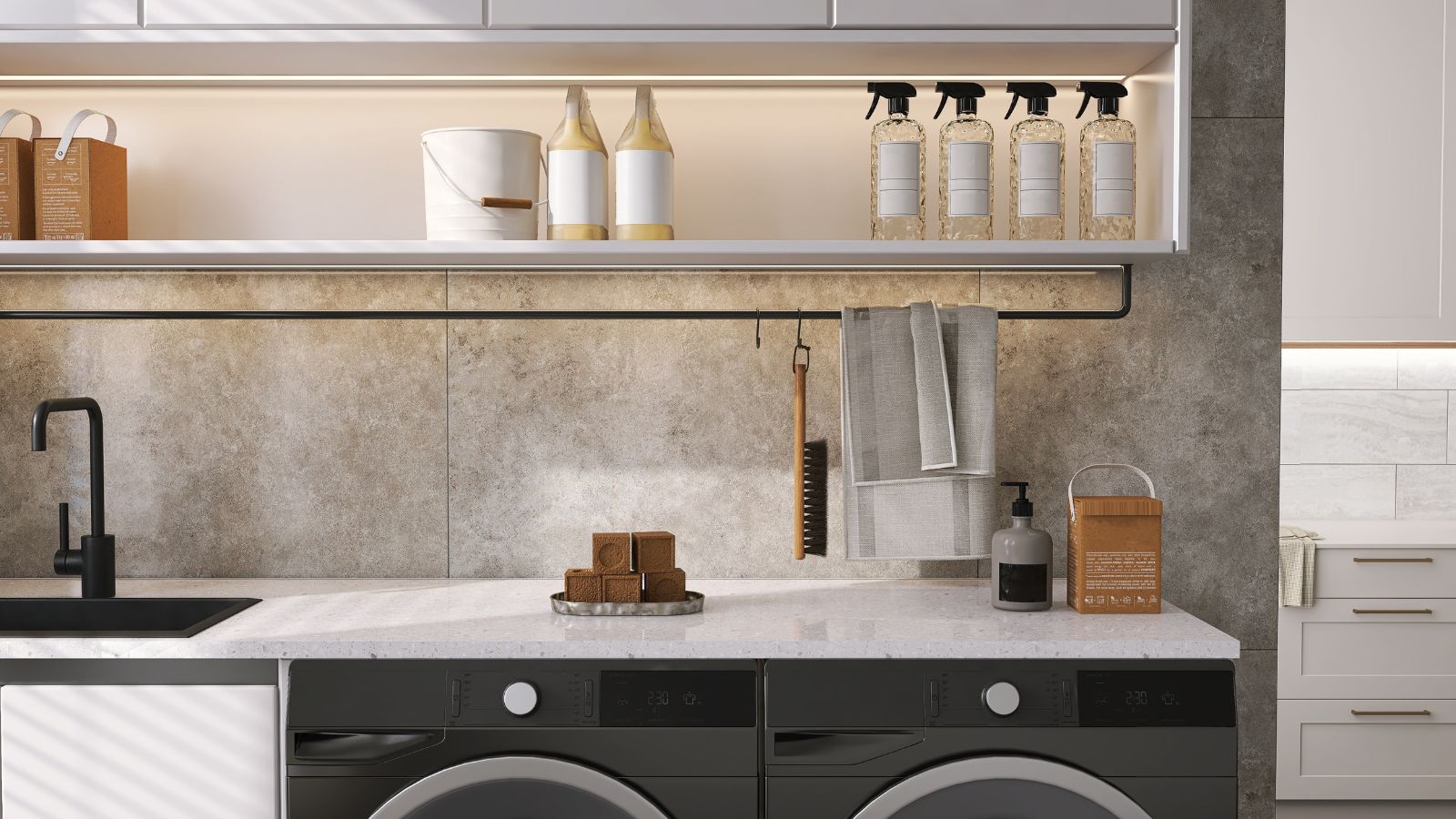 Extend the lifespan of your appliance with 5 simple but crucial washing machine maintenance tips
Extend the lifespan of your appliance with 5 simple but crucial washing machine maintenance tipsFrom cleaning the filters to keeping the door open, experts reveal the washer tips they swear by
By Andy van Terheyden
-
 5 vital ways a home battery backup can help with your most urgent needs in a power outage – from heating to flood prevention and calls
5 vital ways a home battery backup can help with your most urgent needs in a power outage – from heating to flood prevention and callsExperts say they're a worthy investment
By Clement Feng
-
 I’m an HVAC technician, and this is when I turn on my AC each year – plus 5 checks I always do beforehand
I’m an HVAC technician, and this is when I turn on my AC each year – plus 5 checks I always do beforehandSave yourself an AC hassle by running my checks and turning it on before big heat hits
By Josh Mitchell
-
 6 things you should never throw in the trash – and what to do for safe disposal instead
6 things you should never throw in the trash – and what to do for safe disposal insteadFrom batteries to space heaters, experts reveal what not to throw
By Andy van Terheyden
-
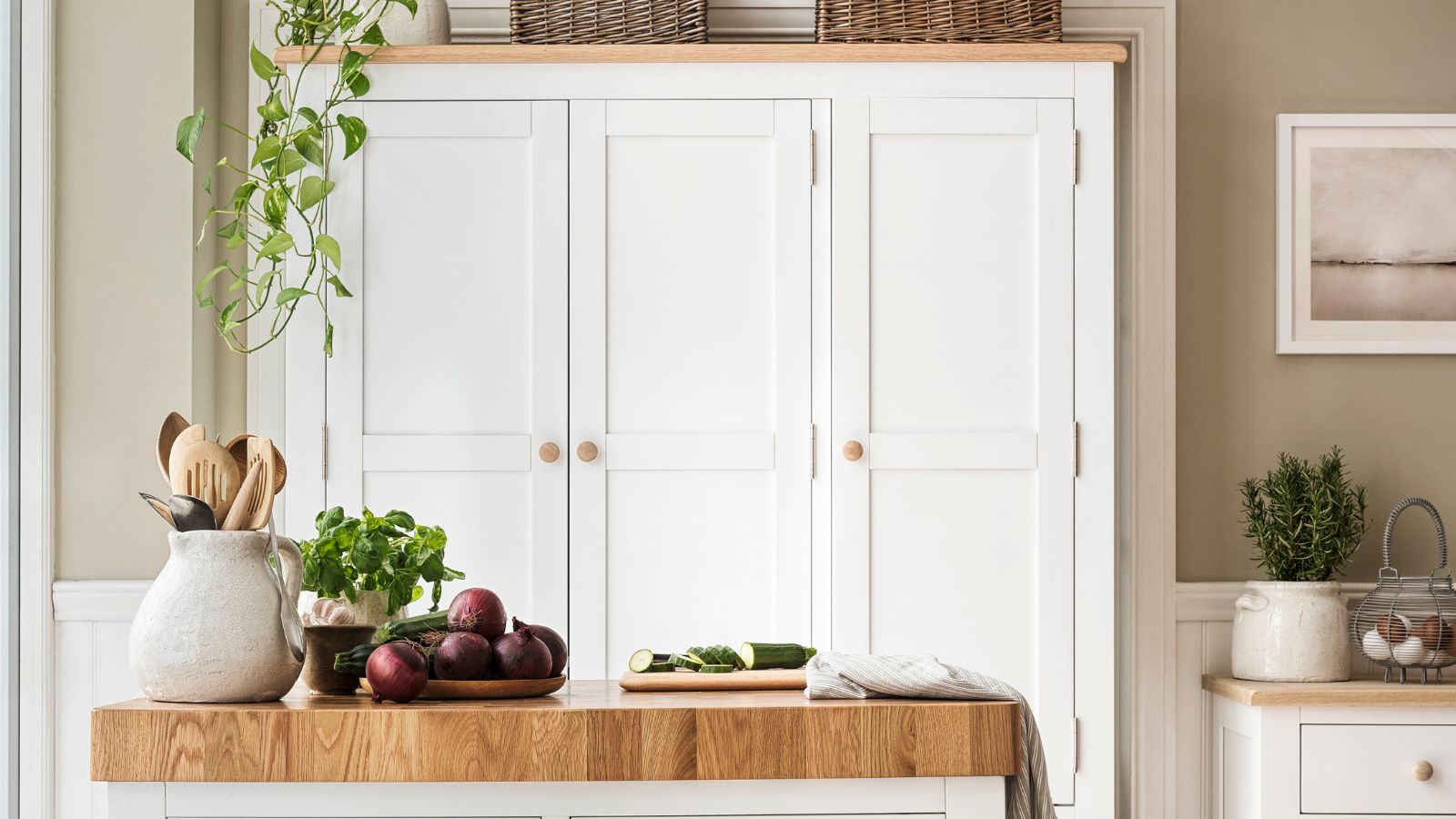 7 spring home maintenance mistakes to never make – overlooking these now can lead to pest problems and structural damage
7 spring home maintenance mistakes to never make – overlooking these now can lead to pest problems and structural damageHome improvement pros share common mistakes and what to do instead
By Eve Smallman
-
 10 common but little-known HOA fines to watch out for – and how to avoid them
10 common but little-known HOA fines to watch out for – and how to avoid themFrom sprinklers to garage doors and external pipes, your HOA contract may leave you open to a fine
By Eve Smallman
-
 I’m a homes editor and these are the 4 vital storage items I’m 'adding to cart' this spring – and why you should too
I’m a homes editor and these are the 4 vital storage items I’m 'adding to cart' this spring – and why you should tooI've learned a few hard lessons in recent weeks and these storage solutions will help
By Punteha van Terheyden